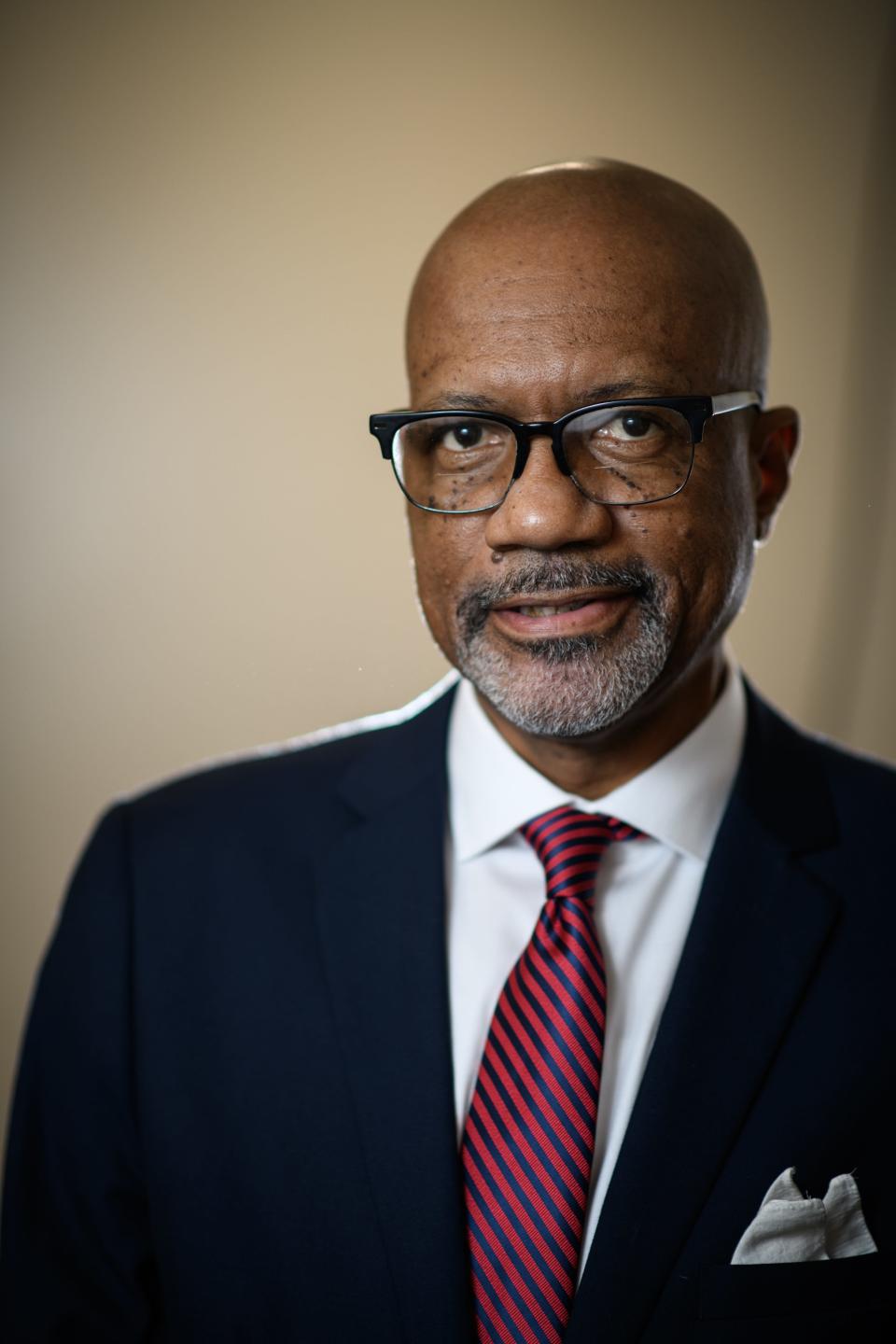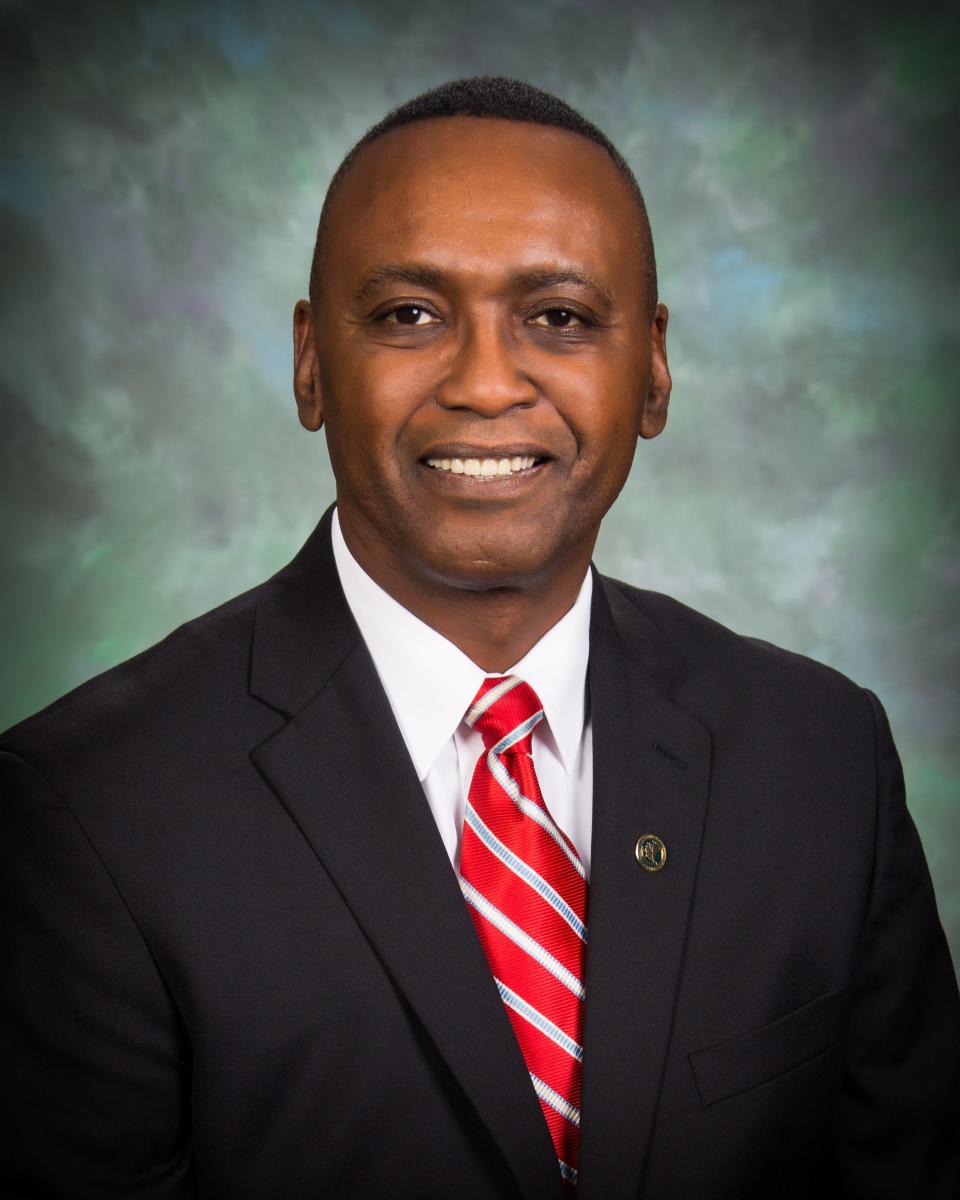Williams: Colvin, Evans Fayetteville mayor race could strain relations in Black community
- Oops!Something went wrong.Please try again later.
The fight for the 2023 Fayetteville mayoral race will be dynamic and historical. There are four candidates, but two are political icons pitted against each other, the incumbent Mitch Colvin and the challenger Charles Evans, both African Americans.
Politics in the Black community is complex.
Mitch Colvin grew up in the Broadell subdivision neighboring E.E. Smith High School and Fayetteville State University. Colvin is completing his third term as Fayetteville’s second African American mayor. He and his brother inherited a well-established and viable business in the heart of the African American community off Murchison Road.

Charles Evans, an Army veteran, grew up across town in Savoy Heights; he did not have the charmed childhood that Mitch Colvin had. Evans is self-made, and he stumbled a few times but eventually found his stride and became a successful politician. He served four years as a District 2 Fayetteville City Councilman and 12 years as an at-large Cumberland County Commissioner. Evans was a popular commissioner garnering over 53,000 votes in 2018.
More: Pitts: Could former Cumberland Commissioner Evans be the one to beat Fayetteville Mayor Colvin?
More: Troy Williams: Fathers play huge role in successfully raising Black boys in America
This race will badly strain relations in Fayetteville’s Black community. It’s a close call as to which of these two politicians is the most powerful. Colvin looks more polished, but Evans appears more popular. Ultimately, the difference will likely be which politician can craft and execute a strategy to produce a winning coalition.


Two other candidates are on the ballot: Freddie de la Cruz, a retired Army officer and businessman, and Quancidine Hinson-Gribble, a community advocate. De la Cruz is Hispanic, and Hinson-Gribble is African American.
Another twist to the maze is political operative Nero B. Coleman, an African American activist. Coleman left the Colvin camp after three mayoral campaigns and aligned himself with de la Cruz.
“Freddie is a person of color too. He’s also a native of Fayetteville,” Coleman said. “What impressed me was his passion for Murchison Road and poor people. I’ve vetted him just like other politicians, and I’m supporting him not because of his party affiliation or politics but because of his heart.”
All the candidates stated why they were seeking office as follows:
Freddie de la Cruz — I am running for mayor to help our police, fire/EMT departments receive the required resources and training to protect our citizens. I want to create high-paying jobs and overhaul the transportation system. I pledge to develop and maintain an honest, fair and transparent government.
Mayor Mitch Colvin — I am running to give a better quality of life to our residents by creating jobs and continuing investments in our underserved communities, our parks and recreation facilities, and cultural programs. I provide results, not just promises.
Quancidine Hinson-Gribble — I am running for mayor because we need a solid foundation. I will make everyone responsible for their actions. My immediate priority will be to lower the crime rate.
Charles Evans — I am running because I want Fayetteville safe for all citizens. The daily homicides are overwhelming. I’m concerned about the lingering Public Works Commission connection costs for residents in the western part of the city. Fayetteville needs visionary leadership, and I’m willing to serve.
Troy Williams is a member of The Fayetteville Observer Community Advisory Board. He is a legal analyst and criminal defense investigator. He can be reached at talk2troywilliams@yahoo.com.
This article originally appeared on The Fayetteville Observer: Williams: Fayetteville mayor race could strain relations in Black community

